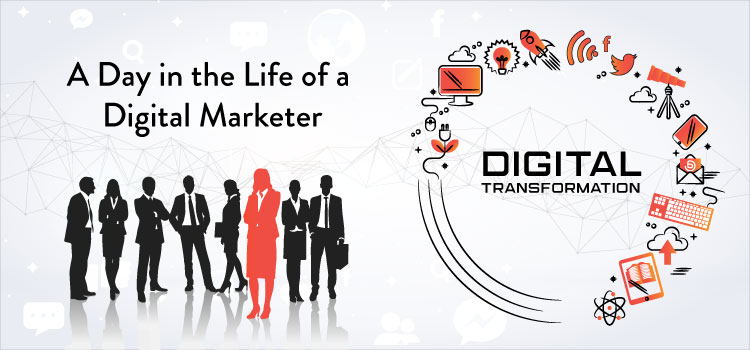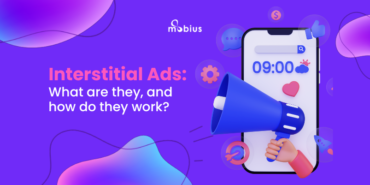We live in an era of transformation.
Technology has driven a major shift in the way we live our lives. It’s permeated every aspect of our society, our workplace and our homes. Transformation is inevitable now. When it comes to business, the biggest impediment to a company’s success is its efficiency in digital transformation.
What is Digital Transformation?
So, why are companies going digital? It’s not just because there lie a goldmine of opportunities at the end of the digital transformation rainbow but also a compelling obligation. Much like consumer expectations, technology is also advancing at an exponential rate.
It doesn’t matter if a business is set in profit/ non-profit/ MNC/ public or private sectors, the transformation is vital to the existence of any kind of business. It helps an organization meet the ever challenging customer demands and enables them to evolve faster in a constantly changing digital economic landscape.
A business either has to go digital, or it has to perish.
What does a Digital Marketer Do?
You’re probably wondering as to all the things a digital transformation expert does on a day to day basis. The truth is, there is no typical day.
What a workday looks like will depend on so many factors.
What is the size of the company you work for? Are your company’s products or services is B2B or B2C? What are your company’s overall goals? Where are you in your career? What is the area of digital marketing that you specialize in?
Meet Tanya. A 28-year-old digital marketer. Her office sells enterprise application software and they build customised applications for the various needs of a business. Here’s what a typical day looks like in her office.
9 am: Tanya comes in and takes a look at the analytics data that has come in the day before from Google Analytics. It helps her prepare the priorities for the next few hours. Google Analytics is a popular analytics tool for digital marketers and transformation experts that allows them to view and measure the various key performance indices.
10 am: She starts to work through her emails, which include everything from SEO reports on upcoming content to contributor requests and more. It’s time for Tanya to send a monthly report on key performance metrics to the company’s chief marketing officer. She also checks in projects in progress and tweaks them up to increase their efficiency.
11 am: Tanya checks in on a Facebook ad campaign with the design team and a copywriter. She brings insights from what has worked before and has final approval on each ad that goes live. Changing the way they do their marketing and branding are a significant part of the digital transformation.
Facebook ads are a major digital marketing channel. They involve dealing with media assets such as videos or photos complemented by lines of text. Marketers will work with copywriters for the text and designers for the media assets.
12 pm: Tanya has lunch with a fellow digital transformation experts and managers to swap war stories, share insights, and compare notes.
Active digital professionals are a treasure trove of insights and learning. Since the whole world is learning as they go with becoming successful incumbents of transformation, networking is one of the best ways to unlock that knowledge.
1 pm: Tanya and her team check in on an A/B split test, where they compared two different versions of the website to evaluate which users found more engaging. The team compares outcomes together, then she collaborates with engineering and design on how they can improve the website to reflect their findings.
Websites play an important role in the digital incumbency of a business. Having an effective and responsive website is a game changer.
2 pm: Tanya checks her email to find another deluge of messages, including requests for performance data, status updates on projects in progress, and more. She finishes sending off a bunch of updates.
Like most online-based occupations today, lots of the work of digital transformation happens over email. Experts are expected to be in constant communication with people within and outside of their company.
3 pm: Tanya interviews a candidate who applied for a Google Adwords specialist role on the growth team. A dynamic digital transformation team is always looking for new talent!
4 pm: She shares learnings from the A/B test with the rest of the team. They found that displaying images increased conversions. Drawing analytical insights from experiments such as A/B split tests is a large part of a digital transformation expert’s role.
5 pm: Tanya wraps up the day by sending out updates on key tasks and projects.
Why is Digital Transformation Important?
Digital transformation isn’t just for Silicon Valley companies or young startups. Your business cannot thrive if you stick to outdated legacy systems stuck on doing “business as usual.”
While leaders at these organization are well-aware we live in a data-driven world that requires digital dexterity and customer-first innovation, changing the status quo and an entire culture to prioritize long-term digital transformation is like trying to solve a Rubik’s Cube on a rollercoaster.
It requires shifting strategy multiple times as you’re pulled in all kinds of directions. This means organizations will need to adopt new KPIs and redesign core processes to become more transparent and collaborative. For those who succeed, the rewards are high.
If you’d like to transform your business to digital, our experts are waiting!







